Rehearsal for war? Why China surrounds Taiwan by sea and whether there will be invasion
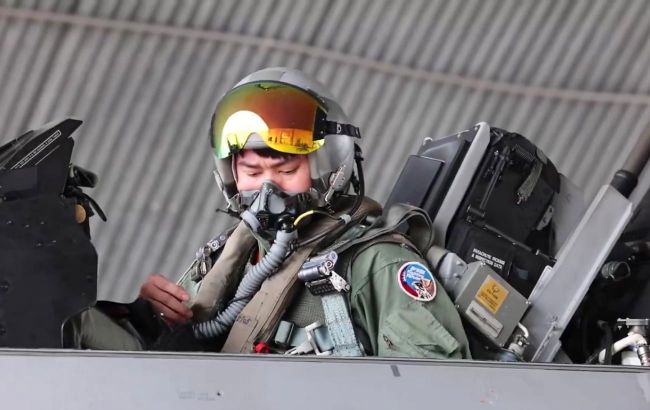 Photo: A Taiwanese pilot in an F-16 before taking off on a patrol over Chinese exercises (Getty Images)
Photo: A Taiwanese pilot in an F-16 before taking off on a patrol over Chinese exercises (Getty Images)
Just days after the inauguration of Taiwan's new president, Lai Ching-te, the Chinese army began large-scale drills. Taiwanese forces have been put on high alert, and the media are reporting a possible threat of invasion.
RBC-Ukraine has delved into the latest escalation in the Taiwan Strait.
Contents
- What is happening in the Taiwan Strait
- Why the drills started and what is China's position
- How Taiwan reacts
- Is China preparing for invasion: What is known
- Suppression instead of seizure. What is China's strategy towards Taiwan
What is happening in the Taiwan Strait
The Chinese exercises Joint Sword—2024A began on the morning of May 23. They are taking place in the Taiwan Strait, in the northern, southern, and eastern areas near Taiwan and near the Kinmen, Matsu, Wuqiu, and Dongyin islands.
According to Li Xi, a representative of the Eastern Theater Command, the maneuvers involve the army, navy, air force, and missile troops.
As part of the exercises, combat readiness in the air and at sea will be tested, control over a hypothetical battlefield will be practiced, and precision strikes on key targets will be carried out. The program includes the escort of aircraft and ships, and operations inside and outside the chain of Taiwanese islands.
Judging by the map, the Chinese army is currently training to encircle and blockade Taiwan.
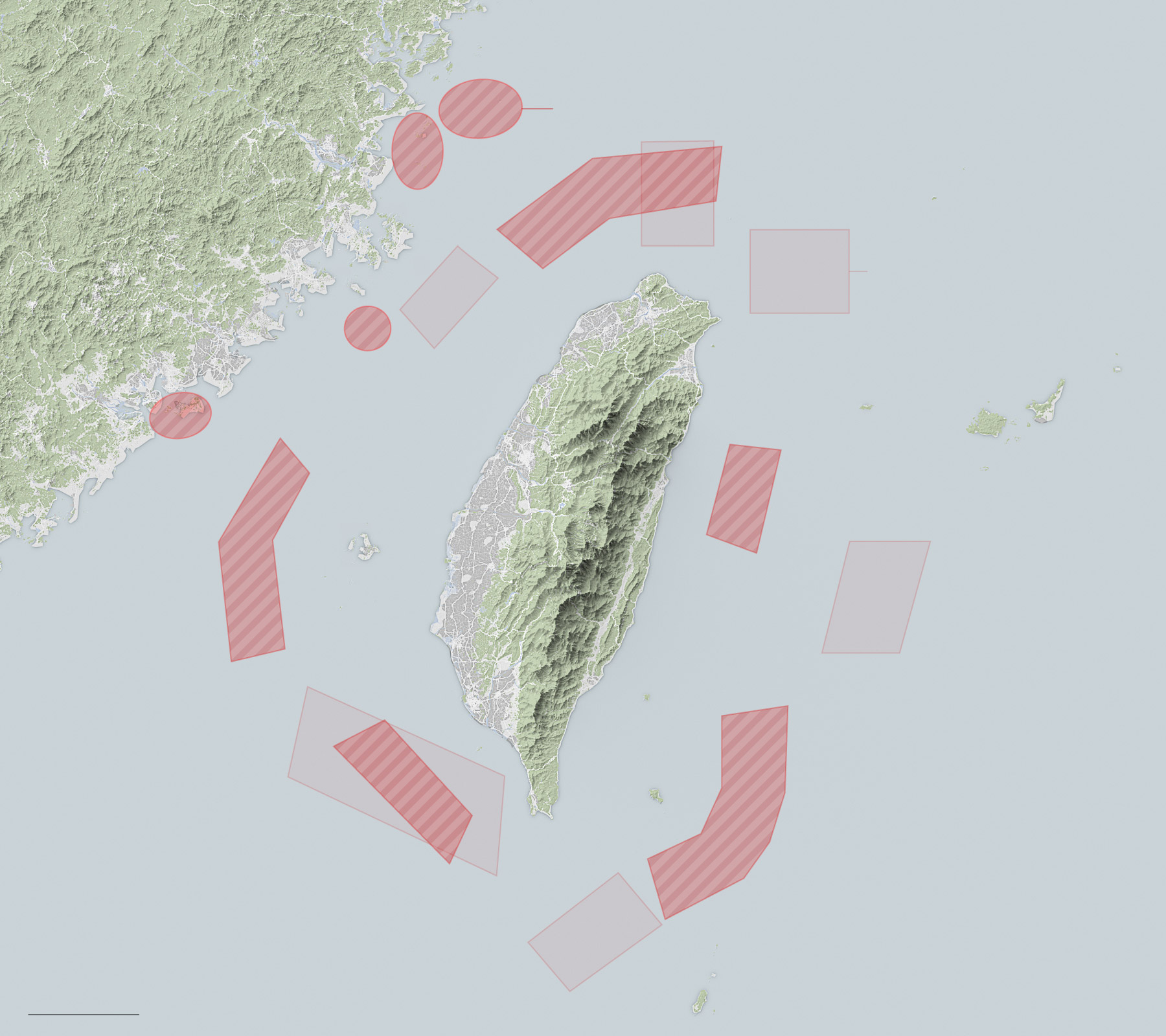
Photo: map of Chinese exercises (nyt.com)
The drills are also "a strong punishment for the separatist acts of Taiwan independence forces" and a stern warning against interference and provocation by external forces, Li added.
The last phrase is clearly addressed to the United States, Taiwan's main ally. Previously, President Joe Biden has repeatedly stated that the US would defend the island in the event of an attack. China considers the island a rebellious province, and Xi Jinping periodically promises to reclaim Taiwan, not excluding the use of force.
Today, Chinese aviation practiced missile strikes. Several bombers, in coordination with ships, conducted simulated attacks east of Taiwan. In the same area, a Coast Guard flotilla conducted comprehensive exercises.
The Chinese theater command showed an animated video featuring missiles launched at the cities of Taipei, Kaohsiung, and Hualien from land, sea, and air. The video ends with the words "sacred weapon capable of destroying independence."
Why the drills started, and what is China's position
The current drills are the largest in almost two years. A series of even larger exercises were held in August 2022 against the backdrop of the scandalous visit of US House Speaker Nancy Pelosi to Taiwan.
At that time, the declared goals also included countering provocations from "separatists" advocating for independence, alleging their collusion with external forces, as well as patrolling the region.
Chinese Foreign Ministry spokesperson Wang Wenbin said at a press conference on Thursday that the exercises are aimed at defending sovereignty and territorial integrity. According to him, they fully comply with international law and practice, being "absolutely legitimate and necessary."
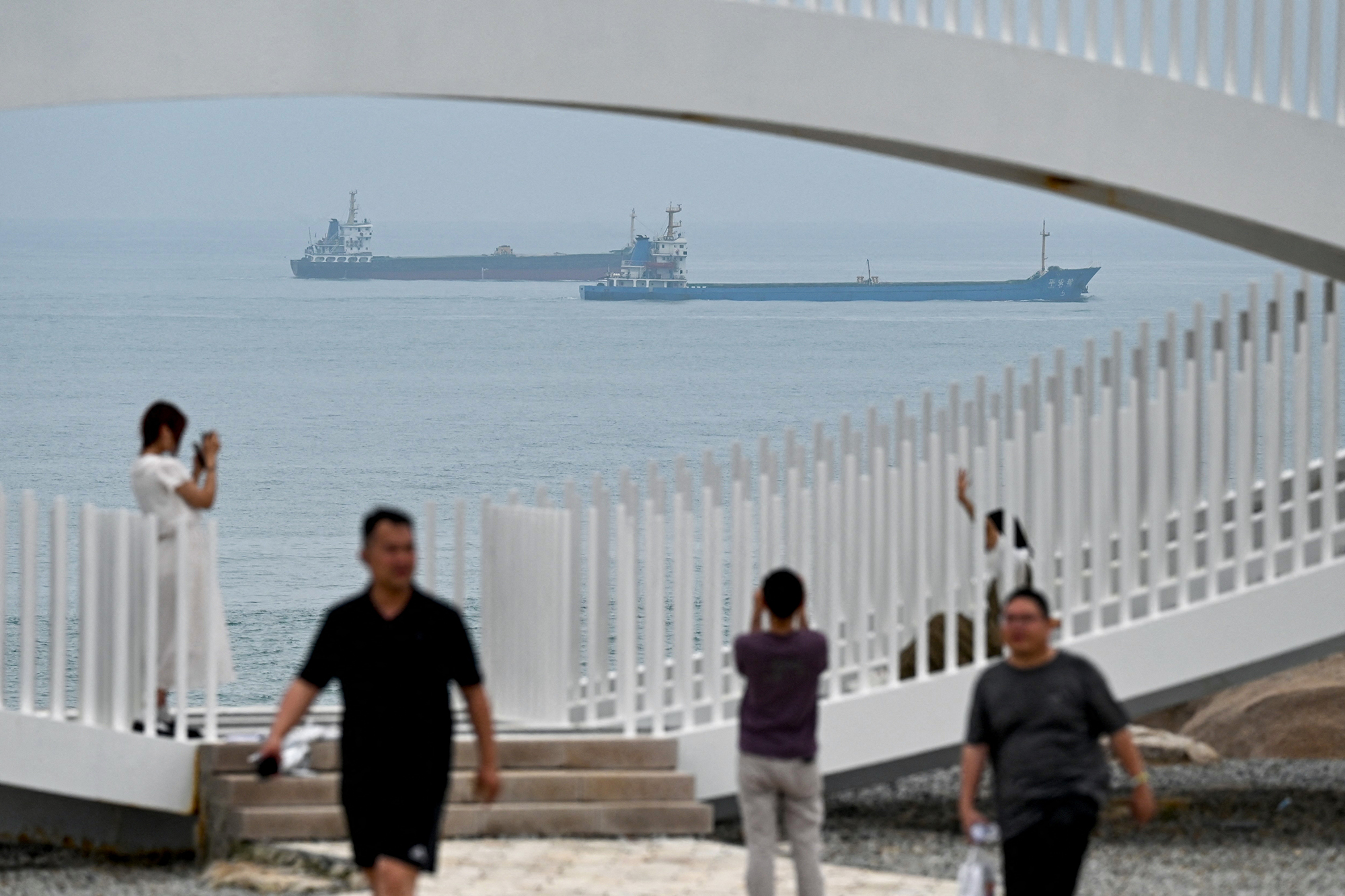
Photo: Chinese vessels in the Taiwan Strait (Getty Images)
Before this, Foreign Minister Wang Yi denounced Taiwanese President Lai Ching-te's inauguration speech as disgraceful.
"Nothing can stop China from achieving 'reunification' and bringing Taiwan back to the motherland. All Taiwan independence separatists will be nailed to the pillar of shame in history," he added.
It's worth noting that on Monday, Lai Ching-te called on Beijing to cease military and political threats. According to him, peace is the only option, and mainland China must respect the choice of the Taiwanese people.
Formally, Taiwan has been independent since 1949 when the government led by the Kuomintang party fled to the island after losing the civil war to the Communists, who established the People's Republic of China.
Lai Ching-te has reiterated several times that the Republic of China (Taiwan's official name) and the PRC do not subordinate to each other. Beijing views such language as separatism and a red line, and any move toward declaring independence would be grounds for attack.
Today, the Chinese side announced that they are working on the possibility of "seizing power."
"They (the exercises) test the capability of joint seizure of power, joint strikes, and control of key territories," said Defense Ministry spokesperson Li Xi.
How Taiwan reacts
Taiwan has elevated its armed forces to heightened readiness and is gathering intelligence. The Ministry of Defense states that if exercises are a "dress rehearsal for invasion," the military prepares for such actions.
"The launch of military exercises on this occasion not only does not contribute to the peace and stability of the Taiwan Strait, it also highlights (China’s) militaristic mentality," the ministry noted, accompanied by a photo of F-16 fighters patrolling the skies.
Earlier, 49 aircraft were detected, most of which crossed the so-called median line. Previously, it served as an unofficial boundary in the Taiwan Strait, but now Chinese aircraft and ships regularly violate it.
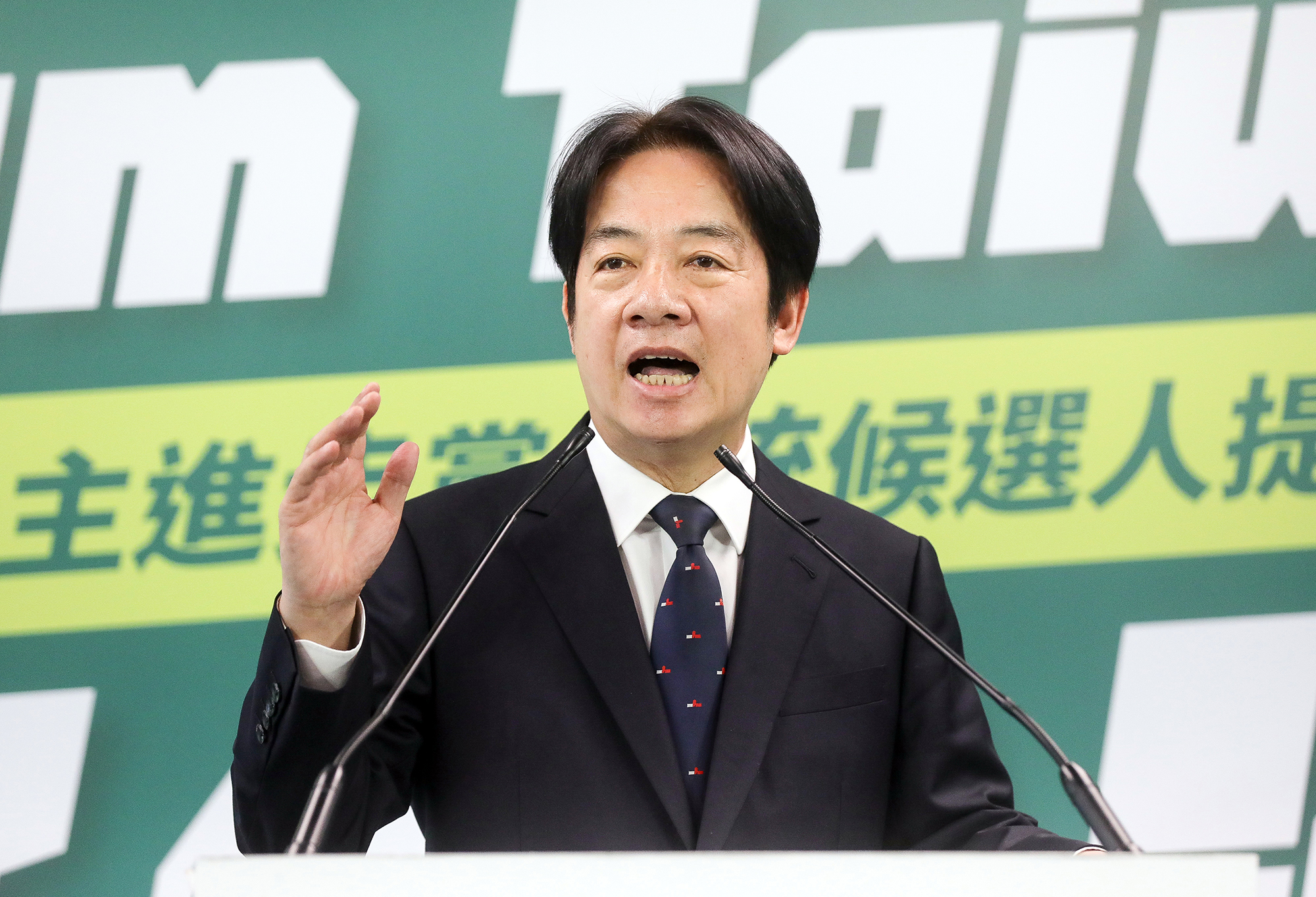
Photo: New President of Taiwan, Lai Ching-te, seeks dialogue with China (Getty Images)
Lai Ching-te's administration has stated that China's unilateral provocations threaten democracy in Taiwan and security. The president himself emphasizes the desire for dialogue with Beijing while preserving the status quo, avoiding conflicts that could involve the United States and other regional partners.
Taiwan's Ministry of Foreign Affairs has called on China to stop undermining stability.
The foreign policy department added that Taiwan will uphold its democratic ideals and will not change under pressure from neighboring countries.
Taiwan's opposition Nationalist Party, which is traditionally considered pro-China, has also condemned mainland China's actions.
Is China preparing for invasion: What is known
Chinese leader Xi Jinping has made it clear that he views resolving the Taiwan issue as part of his legacy.
In March, the head of the US Indo-Pacific Command, John Aquilino, stated that despite economic challenges, Beijing has increased military spending by 16% (to over $223 billion), deployed 400 fighter jets, over 20 ships, and doubled its arsenal of ballistic and cruise missiles in recent years.
"Everything points to President Xi Jinping's order at the PLA meeting to be ready to invade Taiwan by 2027," he added.
According to Bloomberg's estimates, an attack on Taiwan, a center of semiconductor and electronics production, would cost the global economy $10 trillion or 10% of global GDP. This is much more expensive than Russia's invasion of Ukraine, the COVID-19 pandemic, and the global financial crisis combined.
According to Zhang Chi, a lecturer at the National Defense University of the People's Liberation Army of China (PLA NDU), the exercises signal that blockading the eastern regions would cut off energy imports, support from the US and other allies, and routes of retreat for Taiwan's independence forces.
However, yesterday, many media outlets reported alarming news that China purportedly plans to invade Taiwan at the beginning of June. The source is the Global Press account on the social network X.
According to the published post, the information supposedly came from anonymous sources in the Chinese Ministry of Defense. It's difficult to classify the account as a mainstream media outlet since it lacks a website, and searching the network doesn't yield other news referring to Global Press. Moreover, the page only received a verified badge in May.
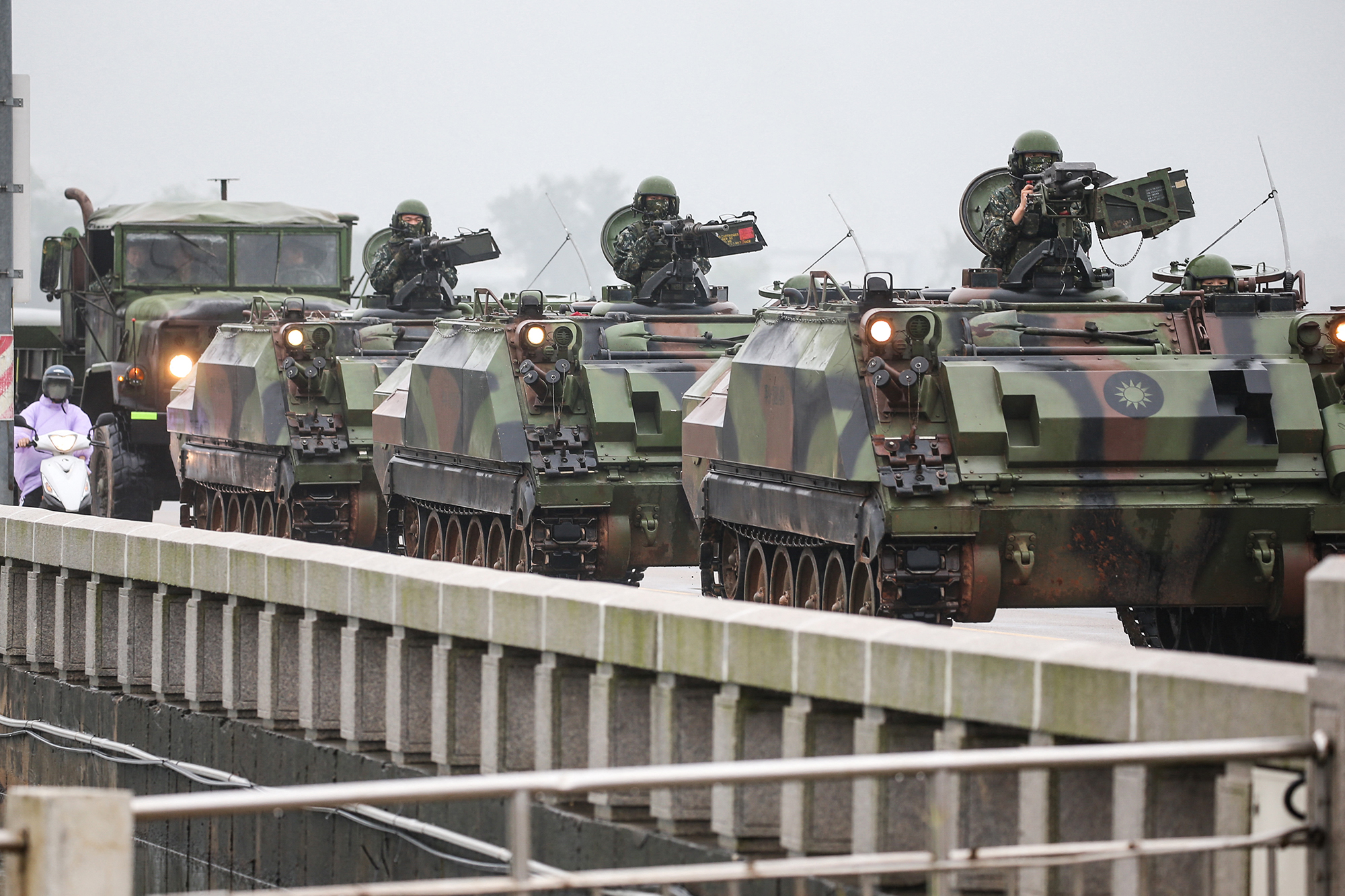
Photo: Taiwanese troops on heightened alert on the island of Kinmen (Getty Images)
According to The Guardian, instead of directly attacking Taiwan, Chinese authorities are more likely to escalate militaristic activities in the gray zone. This could involve intensified patrols near islands, altering flight trajectories across the median line, and frequent use of civilian weather balloons for reconnaissance.
For now, China's actions appear legally justifiable but challenging to respond to, yet the source notes that they continue to exert pressure on Taiwan.
Suppression instead of seizure. What is China's strategy towards Taiwan
Former commander of the United States Armed Forces in the Indo-Pacific region, Philip Davidson, expressed concern about possible invasion as early as 2021.
"I think the threat is manifest during this decade, in fact, in the next six years," he warned.
It is worth noting that his assessment dubbed the Davidson Window, has become a driving force behind US defense strategy and policy in Asia. The Pentagon views the Chinese invasion as a planned scenario, but the threat of landing troops is considered a misplaced focus of Washington's efforts to defend Taiwan, according to Carnegie Endowment for International Peace researchers Isaac Kardon and Jennifer Kavanagh.
In their view, Beijing's patient and long-term policy, which sees reunification as a historical inevitability, suggests that the priority is to reinforce steps already being taken. Namely, through creeping encroachment in airspace, maritime, and informational domains and through so-called gray zone operations—actions in military and economic spheres that do not fall under the definition of war.
The campaign itself won't lead to annexation but may achieve certain interim goals, the main one being to suppress Taiwan's aspirations for independence.
The United States' ignoring of the gray zone campaign demonstrates the limits of its influence in Asia. For instance, the United States is unlikely to deploy advanced missile systems unless China provides a clear reason for war. Instead, Americans might find themselves in a dilemma debating whether Beijing crossed a red line.
"The United States should become more alert to the dangers posed by the slow strangulation of Taiwan. If current trends persist, it is likely that the Davidson Window will come and go with no war—but with Taiwan’s autonomy and the United States’ credibility both greatly diminished," they write in an article for Foreign Affairs.
Russia's inability to swiftly capture Kyiv after the 2022 invasion starkly underscores the attractiveness of this strategy. Beijing is showing an increased interest in suppressing Taiwan, understanding that achieving military victory will be challenging.
Experts believe China will most likely continue tightening the noose, patrolling ever-larger areas of the Taiwan Strait or imposing customs measures to curtail commercial flows. These actions don't constitute a blockade either operationally or legally, but they achieve similar goals, leaving the possibility of a deadly campaign in the future.
Sources: statements from Chinese and Taiwanese officials, as well as materials from Reuters, AP, Global Times, Foreign Affairs, and The Independent.

